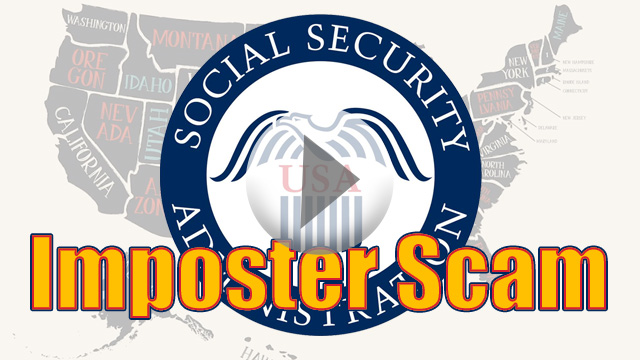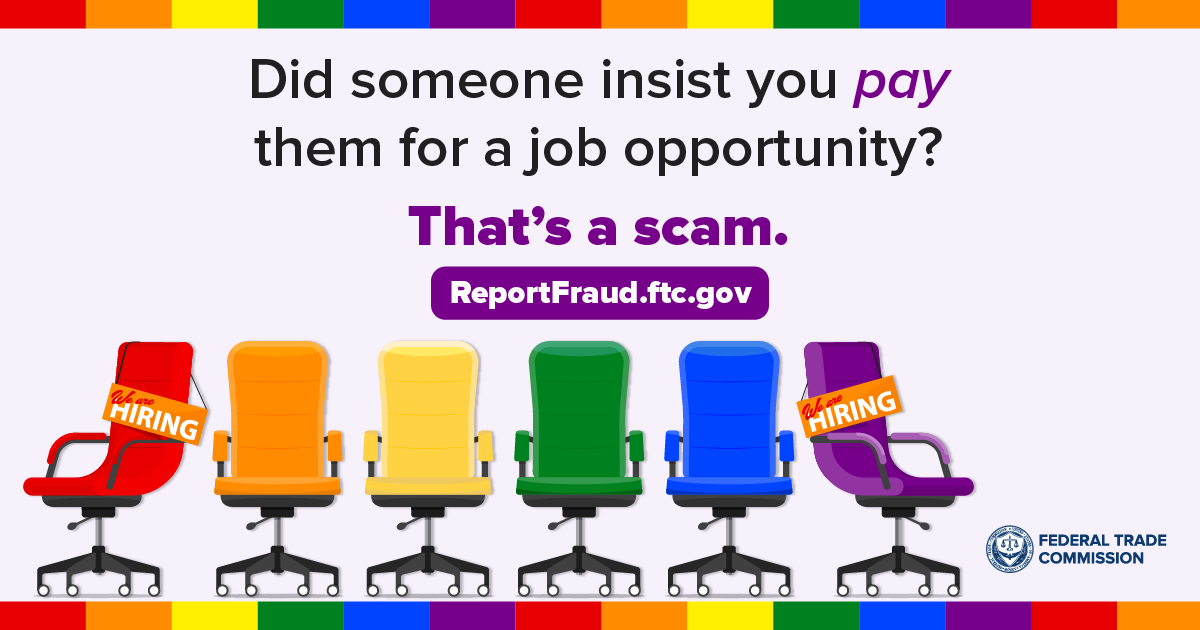|
 |
| FTC Consumer Alert: Getting bombarded by scam calls? You’re not alone. |
Providing accurate and timely information about what matters in Franklin, MA since 2007. * Working in collaboration with Franklin TV and Radio (wfpr.fm) since October 2019 *
|
 |
| FTC Consumer Alert: Getting bombarded by scam calls? You’re not alone. |
|
 |
| FTC Consumer Alert: COVID-19 scam reports, by the numbers |
|
|
"If you’re looking for a remote job, you might be interested in companies that support a cause. But scammers know that and use your interest to draw you in. If, for example, you’re an LGBTQ+ person or ally, a job that says you can “help LGBTQ+ people in need from the comfort of your own home” might sound great. But what happens if you take that next step?Based on reports to the FTC, that LGBTQ+ non-profit looking to “hire fast” could be using common interest to build trust with you. If you’re invested in their cause, they hope you’ll be more willing to give personal information before they’ve told you anything about the job. Or you’ll be willing to deposit that check they sent you for “equipment costs” — and send some of the money on to someone else, or back to them. (These are both big signs of a scam.)"
Continue reading about this scam alert from the FTC -> https://consumer.ftc.gov/consumer-alerts/2023/09/looking-remote-job-cause-you-care-about-heres-how-know-if-its-scam
 |
| Looking for a remote job for a cause you care about? Here’s how to know if it’s a scam |
|
|
|
|
|
|
|
|
| MassDOT sent a specific alert to EasyDrive users earlier this week https://www.franklinmatters.org/2025/01/massdot-alerts-customers-of-smishing.html
|
|
|
|
|
|
"Local residents are experiencing an old email scam with a new twist: Sextortion scammers appear to be hacking into breached databases and using old passwords for leverage over their victims.
Scammers claim to have videos of their intended victims on their laptops while they watch pornography on the internet. They threaten that if a certain amount of money isn’t paid, they will send those videos to everyone in their target’s address book. The password trick is just an additional ploy.
Kevin Morton, owner of Franklin computer repair shop Nerds-To-Go, was working on a sextortion case when contacted on Thursday afternoon. He said scammers are usually all bark and no bite, but he has seen a higher volume of these calls for help coming from the Milford and MetroWest areas in the past few weeks.
“To fix it, just simply delete the email and change the password,” Morton said. “It’s not really necessary to get a new email address.”